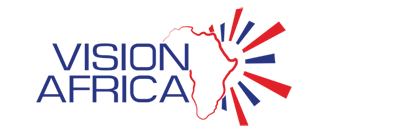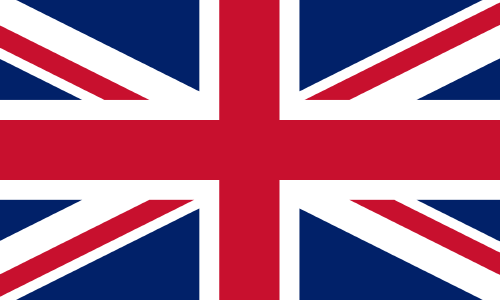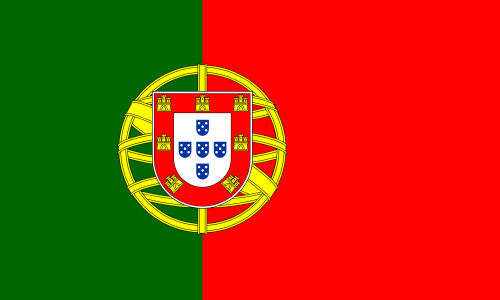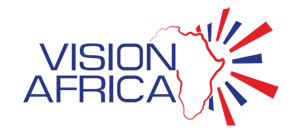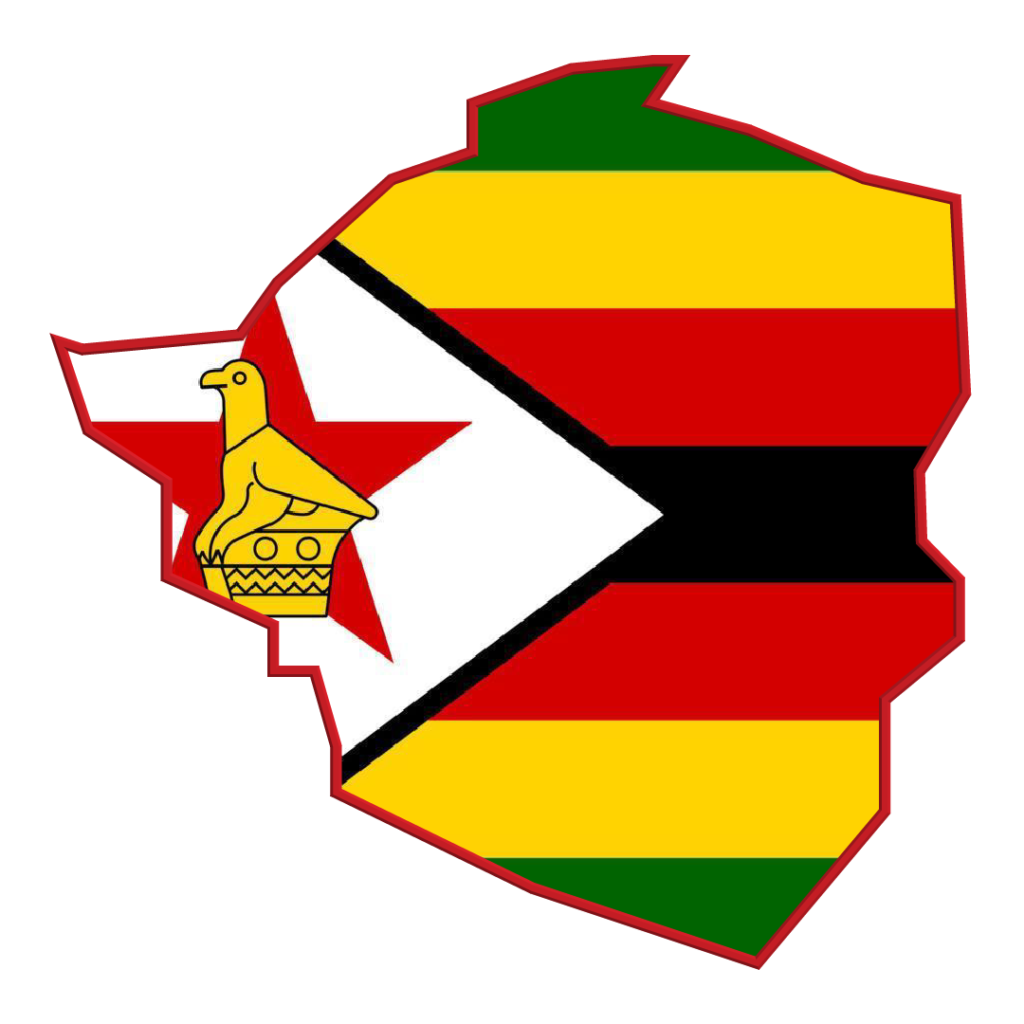
Zimbabwe
|
Capital City
|
Harare
|
|---|---|
|
Official Language
|
English
|
|
Largest Ethnic Group
|
99.38% African (mainly Shona and Ndebele)
|
|
Religion
|
84.1% Christianity
|
|
Government
|
Unitary presidential republic
|
|
Independence
|
18 April 1980
|
|
Establish Constitution
|
15 May 2013
|
|
Area
|
390,757 km2
|
|
Population
|
16,868,409 (2024 estimate)
|
|
Currency
|
Zimbabwe Gold
|
|
Time Zone
|
UTC+2 (Central Africa Time)
|
Zimbabwe is a landlocked country located in southern Africa that shares a border with South Africa to the south, is bounded by Botswana to the southwest, Zambia to the north, and Mozambique to the east. Colonization led to the creation of Southern Rhodesia in 1923 and after UN sanctions and an uprising, free elections in 1979 resulted in the independent country of Zimbabwe in 1980. The Great Zimbabwe ruins, a UNESCO World Heritage Site, are remnants of an ancient city and showcase the country’s historical significance in the region. Zimbabwe holds the record for having the most official languages in the world as it recognizes 16 official languages. Zimbabwe boasts the largest man-made lake in the world, Lake Kariba, created by the Kariba Dam on the Zambezi River, a stunning reservoir surrounded by wildlife and scenic landscapes.
As of April 2022, the population of Zimbabwe was approximately 15,178,979. Out of the total population, 48% were male (approximately 7,289,558) and 52% were female (around 7,889,421). Currently, 36.7% of Zimbabwe’s population resides in urban areas, which amounts to approximately 6,117,511 people. The Shona and Ndebele ethnic groups contribute to the diverse cultural fabric.
Zimbabwe’s economy has faced significant challenges, including hyperinflation during the late 2000s. Agriculture plays a crucial role, with tobacco, maize, and cotton being major crops. The country is rich in mineral resources, including gold, platinum, and diamonds. After experiencing massive inflation in 2008, Zimbabwe abandoned its currency. Since then, it has been using a combination of foreign currencies. Tourism is another important sector, with attractions like Victoria Falls, one of the largest waterfalls in the world.
Its capital city is Harare. As of the 2022 census, Harare had a population of 1,849,600. The estimated population in its metropolitan province is around 2,487,20912. Harare serves as Zimbabwe’s major financial, commercial, and communications centre. It plays a crucial role in trade for commodities like tobacco, maize, cotton, and citrus fruits.
Vision Africa began operations in Zimbabwe in 2011 and has successfully completed many quantitative and qualitative market research surveys for clients. Vision Africa has a dedicated interviewer team in several provinces of the country. All field teams work directly for Vision Africa and have been trained by Vision Africa.
Vison Africa offers its full range of services to clients in the country which include:
Corporate Reputation Studies | Customer Satisfaction Surveys | Employee Engagement Survey | Employee Satisfaction Surveys | Employee Opinion Surveys | Product and Packaging Testing | New Product Testing| Advertising Campaign Testing| Retail Audits | Brand Health Trackers | Social Studies| Media Studies | Market Census | Usage and Attitude Surveys
Maxwell Chivasa
+263 77 224 0943

Zimbabwe
|
Capital City
|
Harare
|
|---|---|
|
Official Language
|
English
|
|
Largest Ethnic Group
|
99.38% African (mainly Shona and Ndebele)
|
|
Religion
|
84.1% Christianity
|
|
Government
|
Unitary presidential republic
|
|
Independence
|
18 April 1980
|
|
Establish Constitution
|
15 May 2013
|
|
Area
|
390,757 km2
|
|
Population
|
16,868,409 (2024 estimate)
|
|
Currency
|
Zimbabwe Gold
|
|
Time Zone
|
UTC+2 (Central Africa Time)
|
Zimbabwe is a landlocked country located in southern Africa that shares a border with South Africa to the south, is bounded by Botswana to the southwest, Zambia to the north, and Mozambique to the east. Colonization led to the creation of Southern Rhodesia in 1923 and after UN sanctions and an uprising, free elections in 1979 resulted in the independent country of Zimbabwe in 1980. The Great Zimbabwe ruins, a UNESCO World Heritage Site, are remnants of an ancient city and showcase the country’s historical significance in the region. Zimbabwe holds the record for having the most official languages in the world as it recognizes 16 official languages. Zimbabwe boasts the largest man-made lake in the world, Lake Kariba, created by the Kariba Dam on the Zambezi River, a stunning reservoir surrounded by wildlife and scenic landscapes.
As of April 2022, the population of Zimbabwe was approximately 15,178,979. Out of the total population, 48% were male (approximately 7,289,558) and 52% were female (around 7,889,421). Currently, 36.7% of Zimbabwe’s population resides in urban areas, which amounts to approximately 6,117,511 people. The Shona and Ndebele ethnic groups contribute to the diverse cultural fabric.
Zimbabwe’s economy has faced significant challenges, including hyperinflation during the late 2000s. Agriculture plays a crucial role, with tobacco, maize, and cotton being major crops. The country is rich in mineral resources, including gold, platinum, and diamonds. After experiencing massive inflation in 2008, Zimbabwe abandoned its currency. Since then, it has been using a combination of foreign currencies. Tourism is another important sector, with attractions like Victoria Falls, one of the largest waterfalls in the world.
Its capital city is Harare. As of the 2022 census, Harare had a population of 1,849,600. The estimated population in its metropolitan province is around 2,487,20912. Harare serves as Zimbabwe’s major financial, commercial, and communications centre. It plays a crucial role in trade for commodities like tobacco, maize, cotton, and citrus fruits.
Vision Africa began operations in Zimbabwe in 2011 and has successfully completed many quantitative and qualitative market research surveys for clients. Vision Africa has a dedicated interviewer team in several provinces of the country. All field teams work directly for Vision Africa and have been trained by Vision Africa.
Vison Africa offers its full range of services to clients in the country which include:
Corporate Reputation Studies | Customer Satisfaction Surveys | Employee Engagement Survey | Employee Satisfaction Surveys | Employee Opinion Surveys | Product and Packaging Testing | New Product Testing| Advertising Campaign Testing| Retail Audits | Brand Health Trackers | Social Studies| Media Studies | Market Census | Usage and Attitude Surveys
Maxwell Chivasa
+263 77 224 0943

Zimbabwe
|
Capital City
|
Harare
|
|---|---|
|
Official Language
|
English
|
|
Largest Ethnic Group
|
99.38% African (mainly Shona and Ndebele)
|
|
Religion
|
84.1% Christianity
|
|
Government
|
Unitary presidential republic
|
|
Independence
|
18 April 1980
|
|
Establish Constitution
|
15 May 2013
|
|
Area
|
390,757 km2
|
|
Population
|
16,868,409 (2024 estimate)
|
|
Currency
|
Zimbabwe Gold
|
|
Time Zone
|
UTC+2 (Central Africa Time)
|
Zimbabwe is a landlocked country located in southern Africa that shares a border with South Africa to the south, is bounded by Botswana to the southwest, Zambia to the north, and Mozambique to the east. Colonization led to the creation of Southern Rhodesia in 1923 and after UN sanctions and an uprising, free elections in 1979 resulted in the independent country of Zimbabwe in 1980. The Great Zimbabwe ruins, a UNESCO World Heritage Site, are remnants of an ancient city and showcase the country’s historical significance in the region. Zimbabwe holds the record for having the most official languages in the world as it recognizes 16 official languages. Zimbabwe boasts the largest man-made lake in the world, Lake Kariba, created by the Kariba Dam on the Zambezi River, a stunning reservoir surrounded by wildlife and scenic landscapes.
As of April 2022, the population of Zimbabwe was approximately 15,178,979. Out of the total population, 48% were male (approximately 7,289,558) and 52% were female (around 7,889,421). Currently, 36.7% of Zimbabwe’s population resides in urban areas, which amounts to approximately 6,117,511 people. The Shona and Ndebele ethnic groups contribute to the diverse cultural fabric.
Zimbabwe’s economy has faced significant challenges, including hyperinflation during the late 2000s. Agriculture plays a crucial role, with tobacco, maize, and cotton being major crops. The country is rich in mineral resources, including gold, platinum, and diamonds. After experiencing massive inflation in 2008, Zimbabwe abandoned its currency. Since then, it has been using a combination of foreign currencies. Tourism is another important sector, with attractions like Victoria Falls, one of the largest waterfalls in the world.
Its capital city is Harare. As of the 2022 census, Harare had a population of 1,849,600. The estimated population in its metropolitan province is around 2,487,20912. Harare serves as Zimbabwe’s major financial, commercial, and communications centre. It plays a crucial role in trade for commodities like tobacco, maize, cotton, and citrus fruits.
Vision Africa began operations in Zimbabwe in 2011 and has successfully completed many quantitative and qualitative market research surveys for clients. Vision Africa has a dedicated interviewer team in several provinces of the country. All field teams work directly for Vision Africa and have been trained by Vision Africa.
Vison Africa offers its full range of services to clients in the country which include:
Corporate Reputation Studies | Customer Satisfaction Surveys | Employee Engagement Survey | Employee Satisfaction Surveys | Employee Opinion Surveys | Product and Packaging Testing | New Product Testing| Advertising Campaign Testing| Retail Audits | Brand Health Trackers | Social Studies| Media Studies | Market Census | Usage and Attitude Surveys
Maxwell Chivasa
+263 77 224 0943
